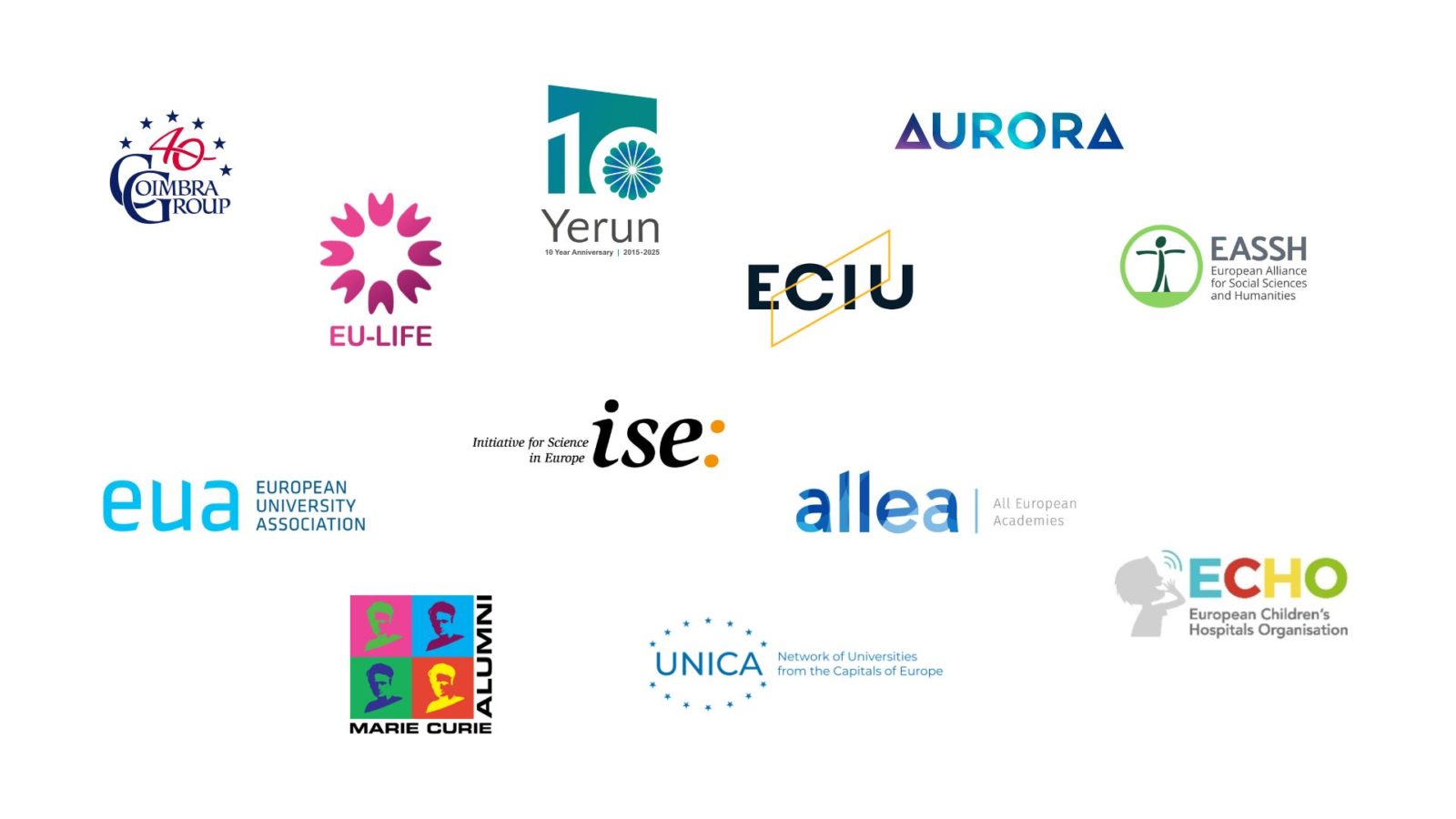Joint statement: Calling for enhanced early-stage collaborative research and innovation (R&I) in the next European Framework Programme (FP10) 
11 July 2025 | From UNICA
As Europe prepares for the next Multiannual Financial Framework (MFF) and Framework Programme for Research and Innovation (FP10), stakeholders across the continent are coming together to reaffirm the critical role of early-stage collaborative research and innovation (R&I) in shaping the future of Europe’s knowledge economy.
Why Early-Stage Collaborative R&I Matters
Early-stage collaborative R&I focuses on research conducted before market competition, typically at low to mid Technology and Societal Readiness Levels (TRLs/SRLs). This type of research:
- Generates new knowledge and enabling technologies
- Builds shared infrastructures essential for entire sectors
- Encourages curiosity-driven exploration and breakthrough science
- Supports cross-border, cross-sector, and interdisciplinary collaboration
- Fosters resilient and competitive innovation ecosystems
In short, it lays the groundwork for Europe’s long-term strategic autonomy, global competitiveness, and capacity to address pressing societal challenges.
The Irreplaceable Role of EU-Level Funding
While national and regional funding schemes serve important functions, only the EU Framework Programme provides the scale, scope, and strategic mandate needed to support transnational and cross-sectoral collaboration at this early stage. Without dedicated EU-level support, Europe risks weakening vital connections between universities, research institutions, industry, public authorities, and civil society.
As emphasized by both the European Parliament and the EU27 Research Ministers – notably in the Warsaw Declaration and the EP-ITRE Report – the future FP10 must provide “an attractive frame for collaborative research” and continue to fund research that would not otherwise happen without EU-level support.
The Need for Tailored Support in FP10
While the upcoming European Competitiveness Fund (ECF) may play a role in supporting higher-TRL, scale-up, and deployment-oriented activities, it cannot substitute the research-driven nature of FP10. Instead, the two should be complementary.
To that end, FP10 must provide tailored mechanisms to support open, flexible, curiosity-driven early-stage R&I – mechanisms that are not overly prescriptive and allow for experimentation, risk-taking, and the emergence of new ideas.
Improving the Transition from Horizon Europe to FP10
While Horizon Europe has made significant strides, many stakeholders agree that Pillar II has grown overly complex and focused too heavily on short-term, high-TRL impacts. This limits the participation of key actors, particularly:
- Researchers at lower TRLs
- Early-career researchers
- SMEs and emerging innovators
FP10 must correct this imbalance by:
- Rebalancing the TRL/SRL spectrum, especially strengthening low- and mid-level TRLs
- Simplifying application processes and reducing bureaucratic complexity
- Supporting a diversity of project sizes, including smaller, exploratory initiatives
- Improving success rates to make the programme more inclusive and impactful
A Clear Call to Action
To safeguard Europe’s future as a global R&I leader, early-stage collaborative research must remain at the core of FP10. It must be reinforced, not sidelined, by structural or funding shifts. The stakes are high: without this foundational layer of research, Europe risks losing its edge in scientific discovery, innovation capacity, and strategic autonomy.
Read the full statement HERE



 Co-funded by the European Union. Views and opinions expressed are however those of the authors only and do not necessarily reflect those of the European Union or the European Education and Culture Executive Agency (EACEA). Neither the European Union nor the granting authority can be held responsible for them.
Co-funded by the European Union. Views and opinions expressed are however those of the authors only and do not necessarily reflect those of the European Union or the European Education and Culture Executive Agency (EACEA). Neither the European Union nor the granting authority can be held responsible for them.